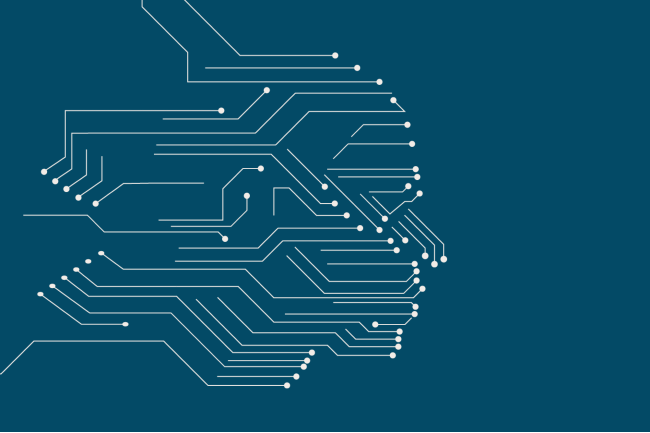New report: Generative AI threatens consumer rights
20. juni, 2023
Over the last months there has been an explosion of services driven by generative artificial intelligence. Consumer organizations in EU and the US call for consumer rights to be at the center of its development and implementation.
– We must ensure that the development and use of generative AI is safe, reliable, and fair. Unfortunately, history has shown that we cannot trust the big tech companies to fix this on their own, says Find Myrstad, Director of Digital Policy at the Norwegian Consumer Council (Forbrukerrådet).
– It is crucial that the EU makes the AI Act as watertight as possible in terms of protecting consumers from harmful uses of this technology. We call on the EU institutions to resist the powerful lobbying of Big Tech companies to water down protections in the future law.” says Ursula Pachl, Deputy Director General of the European Consumer Organisation.

Calling on policymakers and enforcement agencies
The Norwegian Consumer Council today published a detailed report “Ghost in the machine – Addressing the consumer harms of generative AI” outlining the harms, legal frameworks, and possible ways forward. In conjunction with this launch, the Norwegian Consumer Council and 14 consumer organizations from across the EU and the US demand that policymakers and regulators act.
– The risks from generative AI for consumers are well documented in this report by The Norwegian Consumer Council. As long as the EU’s AI Act is not applicable, authorities need to investigate where new generative AI-driven products and services may be harming consumers and enforce existing data protection, safety and consumer protection legislation. Companies cannot be absolved from the EU’s existing regulations, nor should consumers be manipulated or misled, just because this technology is new says Pachl.
– Technology is not some uncontrollable force, but must be adapted and formed by fundamental rights, regulations, and societal values. We are in the driver seat if we choose to be. Many of the challenges we are facing can be tackled using the laws we already have, says Myrstad.
Hand in hand with this, relevant enforcement agencies must have the necessary resources and competence to follow the technological development and to enforce against companies using generative AI without complying with the law.
Therefore, the report also calls for:
- Strengthened consumer protections to make the technology safe, reliable, and fair so that consumers are not used as laboratory animals for new technologies.
- An overarching AI-strategy which takes into account of recent developments, is centered on fundamental rights, and offers strict guidelines for the use of generative AI in the public sector.
- Suitable future-proof regulations in instances where existing laws fall short.
The national authorities must act
It will take several years to create the best possible international framework. This is essential. Efforts are underway. For example, on the 14th of June, the European Parliament agreed on a proposal for regulating artificial intelligence, the AI Act. The regulation is now progressing through negotiations with the European Commission and the Council.
– This regulation will have a significant impact on the development and use of artificial intelligence. However, people are using this technology already and the harms will occur now. Therefore, it is important that national authorities fill the gap with robust enforcement in the meantime, says Myrstad.

Øyvind H. Kaldestad
Kommunikasjonsrådgiver – digitale rettigheter og strøm

Finn Myrstad
Fagdirektør
About Generative artificial intelligence
Generative AI-models are trained on large amounts of data to identify patterns and structures allowing them to generate new content. This can be text, images, audio, or video, which may resemble human-made content.
ChatGPT, Midjourney, Stable Diffusion, and DALL-E are among the best-known generative AI-driven services. Companies such as Microsoft, Google, and Snapchat have already implemented the technology in their services, including search engines, word processing, and chat.
Generative AI is not self-aware, and cannot “learn” new skills by itself, but it can simulate some of the things that humans can do by using machine learning.
Press photo and illustrations
Find Myrstad, Director of Digital Policy at the Norwegian Consumer Council
Illustrations generative AI (VON Kommunikasjon)
Participating organisations
– Adiconsum (Consumers and Environment Protection Association), Italy
Consumentenbond
Consumers’ Organisation of Macedonia (OPM)
dTest (Czech Association of Consumers TEST)
EKPIZO (Consumers’ Association “The Quality of Life”)
Federación de Consumidores y Usuarios CECU
Forbrugerrådet Tænk
Forbrukerrådet (The Norwegian Consumer Council)
Ghaqda tal-Konsumaturi (Consumers’ Association Malta)
Irish Council for Civil Liberties
Latvijas Patērētāju Interešu Aizstāvības Asociācija – Lpiaa (Latvian National Association for Consumer Protection)
Neytendasamtökin – NS (The Consumers´ Association of Iceland)
Sveriges Konsumenter (The Swedish Consumers’ Association)
Transatlantic Consumer Dialogue (TACD)
Zveza Potrošnikov Slovenije – ZPS (the Slovene Consumers’ Association)


